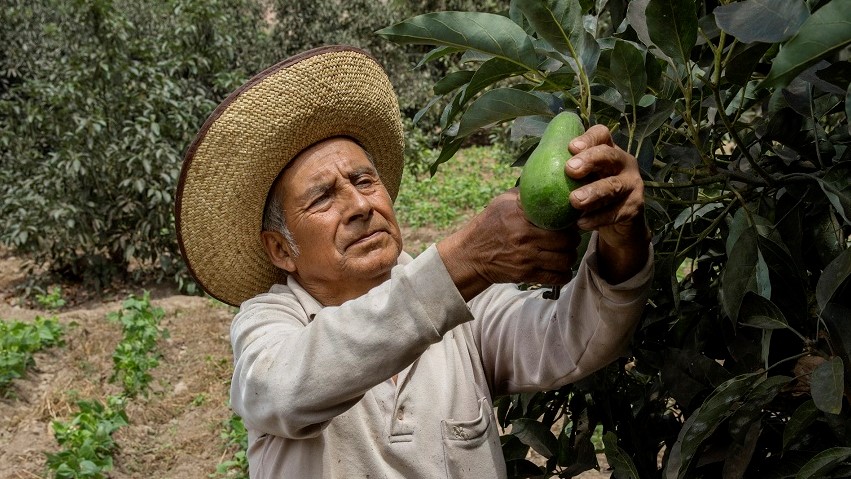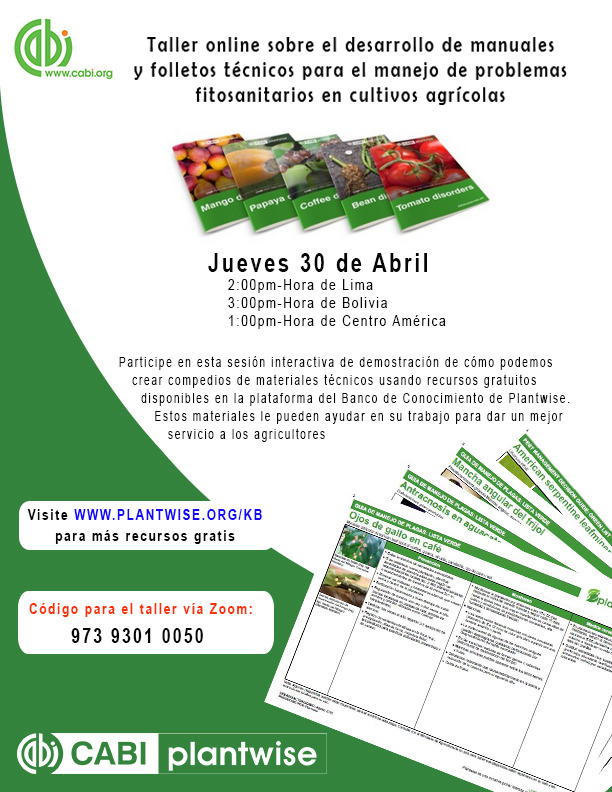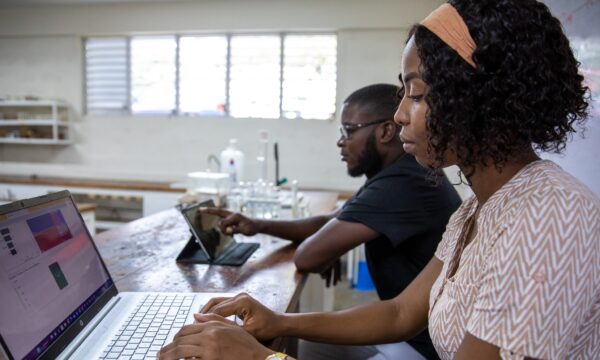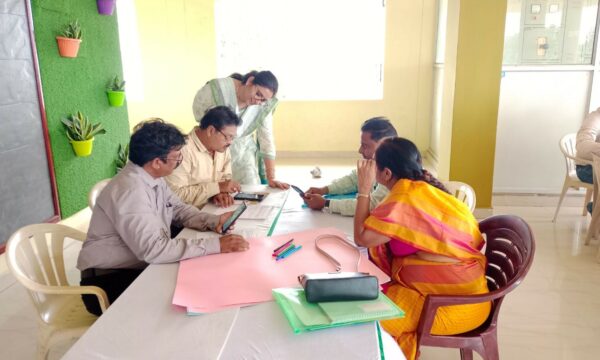
Due to the global COVID-19 pandemic, countries around the world are enforcing restrictions to save lives. Communities are having to change the way they live and work, often relying more on digital tools, if they can. During this unprecedented time, it is vital that smallholder farmers can still access plant health information and advice without being able to physically visit their local plant clinic.
In light of this, Yelitza Colmenarez and Eduardo Hidalgo from CABI Brazil hosted a webinar in collaboration with Plantwise partners Luis Medina (Nicaragua) and Claudia Sainz (Bolivia), on the ‘Development and use of Plantwise technical documents and the importance of remote technology transfer and remote advisory services to farmers during COVID19 restrictions.’

The webinar was attended by 62 plant doctors and specialists from Bolivia, Perú, Costa Rica and Nicaragua and reinforced the importance of the use of current Plantwise material from the Knowledge Bank, plus the development of new ones to provide sound pest management information to farmers. The participants also learned how to develop information booklets – using the Knowledge Bank’s booklet builder – for different crops; an important tool for compiling key information already available on the Knowledge Bank.
The use of different technology transfer methods was also discussed, evaluating the most feasible and efficient tools available. The participants discussed and reviewed the best options for remote communication with farmers and how they can be applied in each country to ensure the delivery of a remote advisory service to farmers despite the current restrictions.
Some of the feasible ways to provide this remote technical assistance to farmers is the launch of a hotline that the producers can call and report the phytosanitary problems they are facing at the field level. This is already being implemented effectively in several countries in Latin America and the Caribbean where plant clinics usually take place. Another very common and effective way of transferring information to farmers is through local and national radio stations through which farmers are an already well-established audience to agricultural programmes.
“The webinar was very well-received and included valuable discussions and ideas on how we can keep engaging with farmers and ensuring that technical assistance can be delivered in spite of COVID-19 restrictions,” said Dr Yelitza Colmenarez, Plantwise Regional Coordinator for Latin America and the Caribbean.
With smallholder farmers producing the region’s key crops like potato, tomato, corn, beans, rice, coffee, tropical fruits, among others, Plantwise and its partners on the ground are committed to providing the extension advice farmers would normally get in-person at their local plant clinic.
As the COVID-19 pandemic continues and countries find ways to adapt to their “new normal”, it is vital that no one is left behind and the smallholder farmers who grow our food still have access to help and advice during this time.
For access to free online plant health advice visit the Plantwise Knowledge Bank
Header image ©Eduardo Martino for CABI
1 Comment
Leave a Reply
Related News & Blogs
Agricultural digitalization: Opportunities and challenges discussed at workshop in India
Authors: Dr R. Rajkumar, Principal scientist, (MSSRF) and Akanksha Nagpal, Manju Thakur (CABI) Digital tools have the potential to improve agricultural productivity, sustainability, and adaptability. Alongside longtime partners, M S Swaminathan Researc…
5 April 2024





Thanks for sharing information regarding Remote technology transfer and advisory services for farmers during COVID-19. Agrimoon keep it up helpful information.